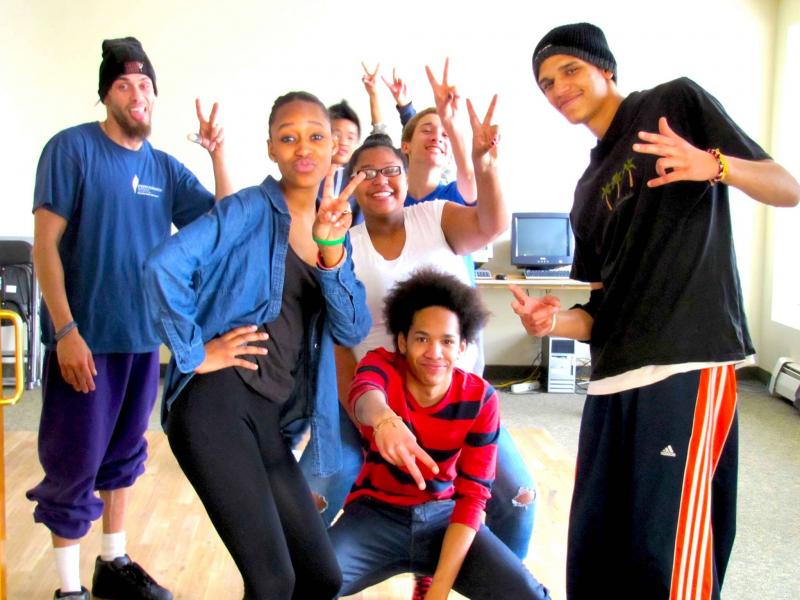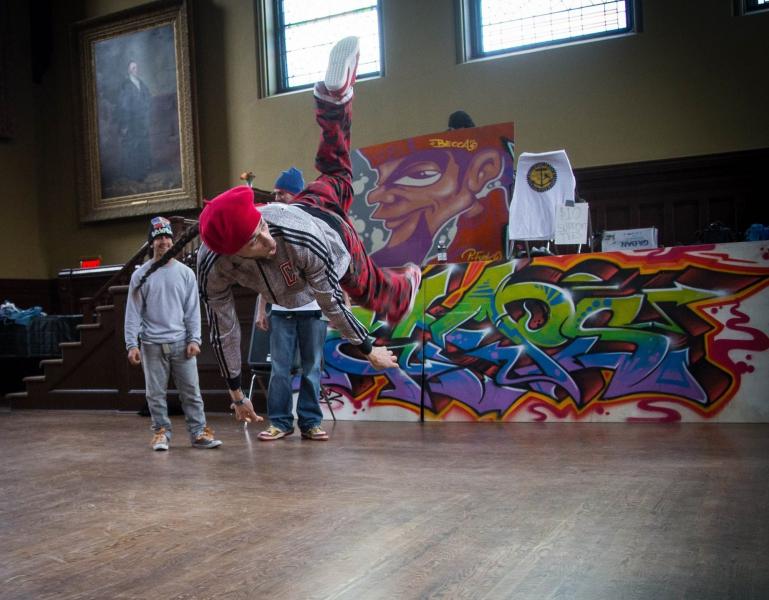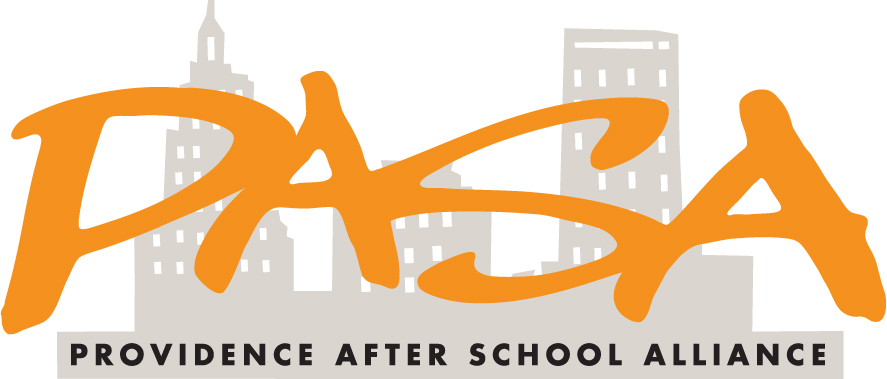
by Ann Durham, Director of Quality Initiatives
posted 5.6.2014

Pictured: Project 401. Program instructor Jose Maldonado top left, program instructor Jean Febles top right
“You’re always going to feel like ‘I can’t do it.’ It’s a matter of getting over that and just doing it. I’ll do it with you. I mean, it’s never easy in the beginning.”
This is the sort of positive encouragement I heard from Jose Maldonado (aka “FaCce”) dole out again and again as I was conducting a program quality observation for the Hub’s Hip Hop Project ELO, provided by Project 401.
PASA has established a series of competencies that we want all of our students to “graduate” our programs with—things like perserverance, good communication skills, confidence. To make sure Hub and AfterZone programs are doing everything they can to encourage and nurture those skills, we use the Rhode Island Program Quality Assessment (RIPQA) tool to observe programs, using the results to offer targeted training in areas for improvement. The RIPQA is specifically designed to measure Positive Youth Development and it advocates for Active-Participatory Approach in youth programming.
Project 401 exemplifies this approach.
Project 401 is a collective of Hip Hop artists based in Rhode Island who use Hip Hop culture to engage with communities and relay positive social messages to youth. Over the course of the spring semester, they’ve been teaching students from Alvarez, JSEC, and E-Cubed high schools how to breakdance, but they also focus on encouraging self-respect and respect for others, building confidence, and instilling tenets of peace and community-building.
Throughout my time with them, I saw both FaCce and Jean offer words of encouragement to their students—pushing them past their boundaries in ways that were supportive and compassionate. They seamlessly incorporated critical life lessons into conversation all the while teaching students new moves, many of which seemingly defied gravity.

Pictured: B Boy FaCce Maldonado shows how it’s done.
When one student was having a particularly frustrating time learning a new move, Jean broke in to explain that it takes years to master a new skill. He offered his own firsthand experience as an example, saying “I’ve been doing this for three years and I still have to work at it every day. FaCce has been at it for fifteen, and it took him years to learn what you’re learning now and be able to do it on the stage.” Over and over again, they broke down difficult tasks into manageable pieces and offered encouragement when students struggled.
Both FaCce and Jean modeled perseverance, teamwork, and open communication and wove together concrete experiences and abstract concepts. When students would get caught up in the idea of learning moves in order to get famous, FaCce and Jean would redirect, reminding them that learning something new is something you do for yourself, to show yourself you believe your potential.
What’s more, FaCce and Jean excelled at youth choice. At one point, FaCce addressed the group with the option of breaking away from practicing the end-of-session routine. One student shouted out “windmills,” to which FaCce responded with an enthusiastic “Wooo, windmills! Let me see what you’ve got!”
This was the first time the Hub has partnered with Project 401 to offer a credit-bearing ELO, but after seeing the stellar youth development example they set, it hopefully won’t be the last time.
